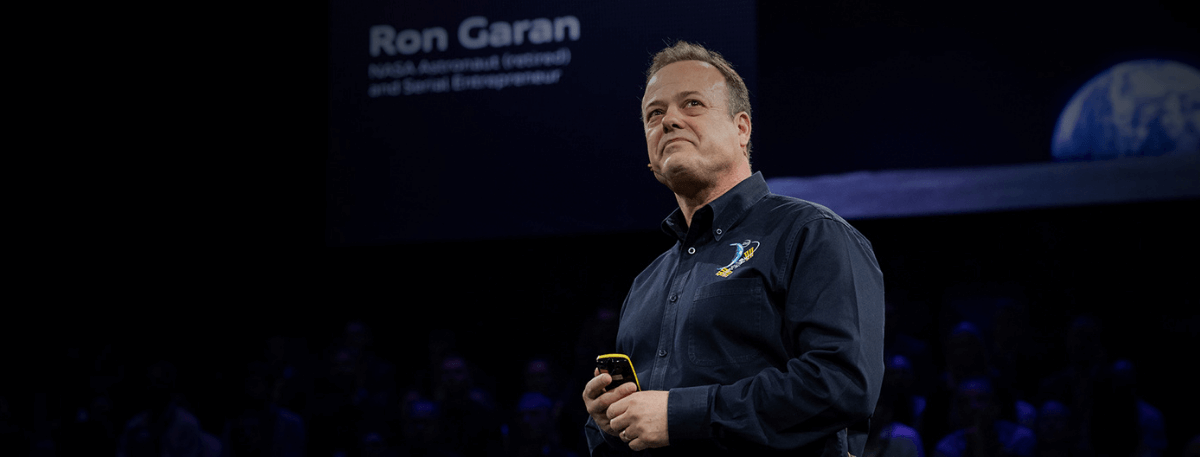“I hope that leaving Earth would help us all truly embrace the reality that we are all members of one, single, human family.”

Image via rongaran.com
Two Tickets to Mars is our brand new series where we quiz some of our favorite people about a trip to the red planet, what they’d take with them, and what exciting enterprises they’d kick start when they get there. So far, we’ve talked to Sir Richard Branson and Dr. Peggy Whitson. Next up…
Ronald J. Garan Jr. is an ex-US Air Force Pilot who went on to become a leading NASA astronaut. “I can fly anything,” Ron jokes. After growing up in Yonkers, New York, he joined the military in the early 80s, becoming a Second Lieutenant in 1984, as well as an F-16 pilot.
Ron was selected by NASA as a pilot in the year 2000, going on to complete his first journey to space in 2008 as Mission Specialist 2 for ascent and entry. His time in space led to his book, Orbital Perspective: Lessons in Seeing the Big Picture from a Journey of 71 Million Miles, in which he writes about how iving on the International Space Station was a powerful, transformative experience that offers the keys to solving our problems on Earth.
Below, to get to know Ron better, we asked him what he’d take with him if he ever made it to Mars.
You are allowed to bring one luxury item with you - what’s going in your suitcase?
A hard drive loaded with books, movies, family photos and videos, and documentaries.
We’ve gotten to Mars through human ingenuity and determination – why is it that humans are driven to innovate, do you think?
Because we appreciate, rely on, and build upon the foundation of human knowledge that we have inherited and we want to do our part to make life better for our and future generations.
All settlers perform tasks on Mars - what skills do you have and why might they be important?
I can fly anything.
You have a spare ticket - who are you bringing with you?
My wife Carmel (if I could talk her into going).
What would you like to discover on your journey?
I hope that leaving Earth would help us all truly embrace the reality that we are all members of one, single, human family.
Now that we are headed to Mars - What does phase two of interplanetary colonization look like?
Using resources found on Earth's moon to build a transportation infrastructure to manufacture and launch human and robotic missions of explorations throughout the rest of the Solar System.
Imagine yourself in the future looking back, what do you wish we’d worked out sooner?
How to reduce the cost of lifting something from the surface of Earth to orbit and how to use electric propulsion once there.